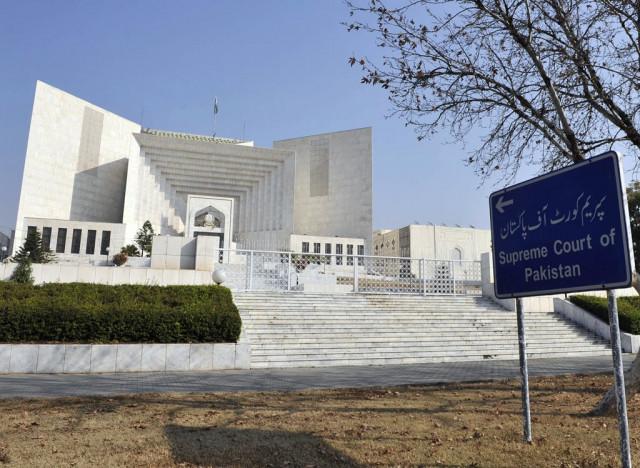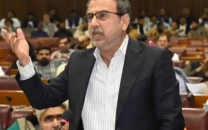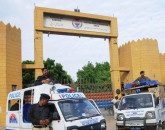SC may ask govt to form ‘special force’ to protect minorities
Constitution ensures protection of worship places of minorities.

“We know your concerns as we respect every religion and the desecration of minorities’ worships is a crime”, said Chief Justice of Pakistan Tassaduq Hussain Jillani. PHOTO: AFP/FILE
He said that the apex court will ensure the protection of minorities’ rights by setting guidelines in this regard. The bench also appointed three lawyers, namely Munir A Malik, Khawaja Haris and Hassan Orangzaib, as amicus curiae to assist it in the case.
Hearing a petition filed by the Sindh Hindu community representative Ramesh Kumar about six recent incidents where their places of worship were desecrated, the chief justice lamented that it was unfortunate constitutional provisions related to the protection of minorities rights have not been enforced in the country.
Addressing the representatives of minorities, CJP Jillani said the issue of protection of minorities’ right is an issue of national level and asked representatives of minority communities furnish written recommendations on the matter.
“We know your concerns and we respect every religion and the desecration of minorities’ worship places is a crime,” said CJ Jillani.
He said that in addition to the Objective Resolution, Article 20 of the Constitution also ensures protection of minorities’ rights, however, these constitutional provisions have not been enforced in the country.
He further stated, “we have collected lot of material, wherein it is highlighted that how these constitutional provisions have been violated and which are the issues that need the attention of the apex court.”
Lamenting the fact that the rights of minorities have not been protected in neither Pakistan nor India, the chief justice said that the apex court is working to resolve the issue. Referring to the Nehru-Liaquat Pact, signed between India and Pakistan on April 8, 1950 he said that it was a good agreement but later on, tension increased between two states.
SC also sought a report from Inspector General Police Sindh.
For his part, the Additional Advocate General Sindh said that FIRs have been registered for the incidents in Sindh.
Upon hearing this, the bench inquired whether the cases have been registered under clauses that address desecration of minorities’ worship places. However, Sindh law officer replied that there is no specific law about the registration of case against the desecration of worship places of minorities.
Hearing his reply, the bench asked him to read Section 295 of the Pakistan Penal Code (PPC), wherein it is mentioned that desecration of minorities’ worships is a crime.
The court asked the Advocate General K-P to file reply about the incident in Karak where a temple was reportedly desecrated.
The bench also directed Advocate General Punjab to submit reply over the complaints of Christian community about the non-registration of their marriages.
Hearings were adjourned until the first week of June.


















COMMENTS
Comments are moderated and generally will be posted if they are on-topic and not abusive.
For more information, please see our Comments FAQ